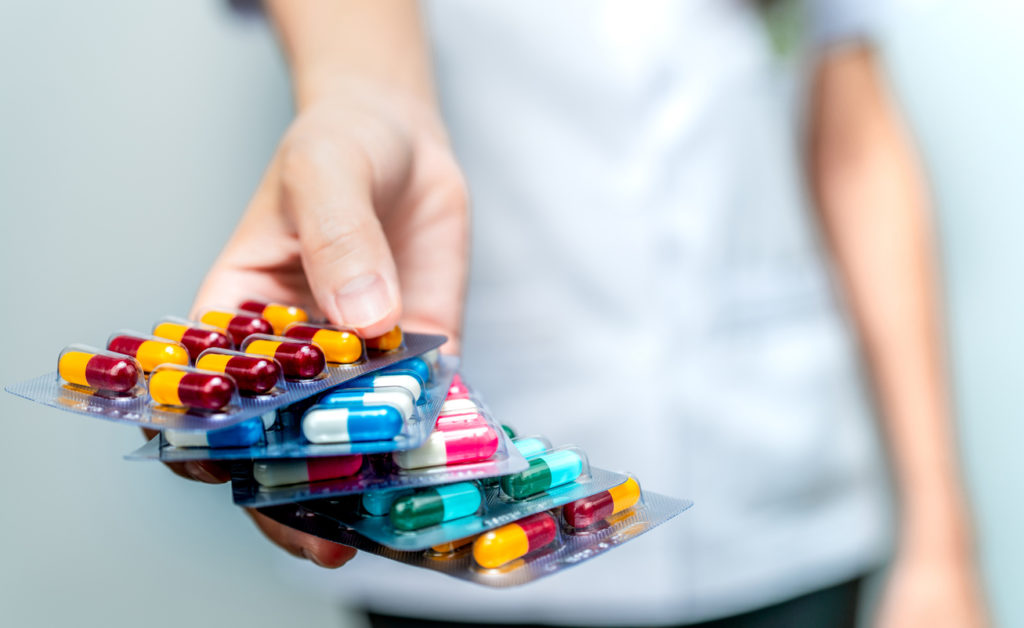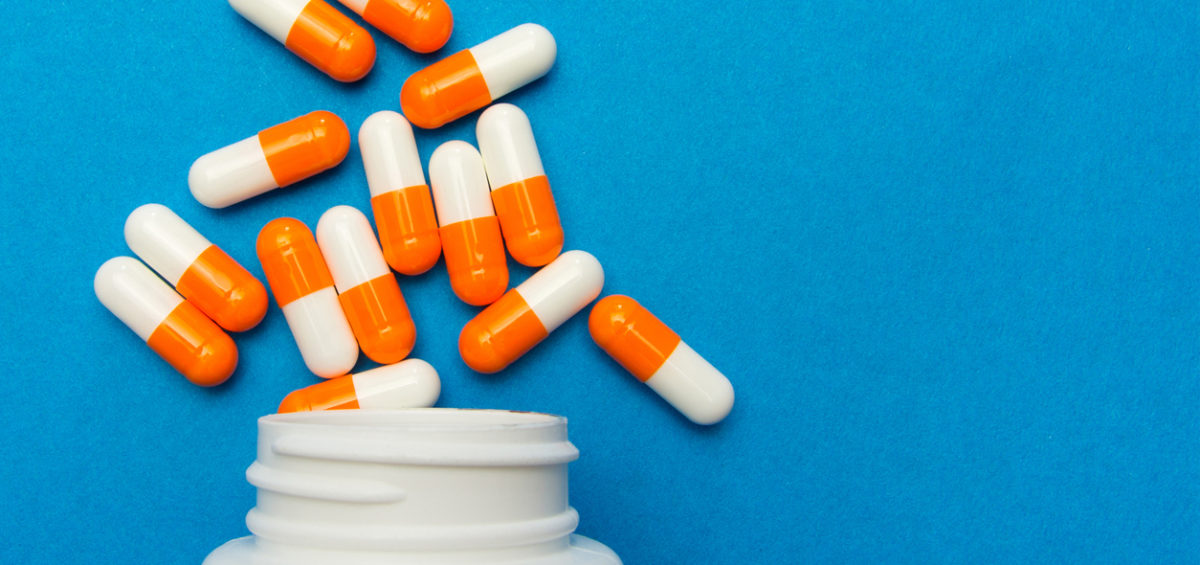Before antibiotics were discovered in the 1900s, bacterial infections were a feared enemy of modern society. Antibiotics changed everything – saving millions of lives and offering an effective tool to battle deadly infections. Fast forward to now, and antibiotics, while still incredibly useful, are sadly claiming the lives of our beneficial gut bacteria (discussed further here), which has been linked to uncomfortable side effects such as antibiotic-associated diarrhoea (AAD).1
Of course, losing a bit of gut bacteria to save you from a nasty infection is a no-brainer; however, the loss of beneficial bacteria from multiple courses of antibiotics can cost you so much more over a lifetime. In fact, losses of good bacteria have been linked to a greater risk of chronic diseases, such as digestive disorders, cardiovascular disease and even mental health symptoms;2 this is why protecting your gut bacteria is a top priority for good health.
The most important thing when taking antibiotics is managing loss of good bacteria during and after every treatment. This means having strategies to help protect your inner health, so that you can deal with AAD, and other issues linked to a loss of good bacteria. This comes down to two things: protecting your bacteria when you need to take antibiotics, and, reducing your need for antibiotics.
The most important thing when taking antibiotics is managing loss of good bacteria during and after every treatment.

Probiotic Protection to Reduce Diarrhoea
A combination of specific probiotic strains (types) can reduce AAD while also helping recover your gut microbiome after antibiotics. Using Ultra Flora Intensive Care, a scientifically formulated probiotic, can assist in rebuilding beneficial gut flora (bacteria), and provide some of the most researched bacterial strains that reduce AAD, including Lactobacillus rhamnosus (LGG®)3 and Saccharomyces cerevisiae (boulardii).4 In a nutshell, Ultra Flora Intensive Care can help you restore healthy gut bacteria after antibiotic use, and this can maintain healthy gut function.
It’s important to note that antibiotics can affect your gut bacteria for up to two weeks after you stop taking them.5 Ensuring you take your probiotic from the start of your antibiotic course until a minimum of two weeks after you finish will give your gut bugs the support they need.
To date, these specific strains have been the most successful in preventing AAD. So, to ensure you are getting the right bang for your hard-earned buck, see a natural health Practitioner to access these strains. To learn more about why specific strains make all the difference when it comes to choosing probiotics, read this blog.
It’s important to note that antibiotics can affect your gut bacteria for up to two weeks after you stop taking them.5
Support Your Immune System to Reduce Your Need for Antibiotics
The World Health Organisation (WHO) has advised us to limit the use of antibiotics to the most essential situations. This is because using them too frequently or inappropriately can help infectious bacteria develop resistance to their antibacterial mechanisms, eclipsing their utility (read more about this here). For this reason, limiting your chances of needing antibiotics in the first place does the world a huge favour.
Bolstering your immunity against infection is the smartest way to reduce your need for antibiotics and curb your risk of related side effects. Here are our best tips on how to do this:
- Wash your hands frequently with soap and water;
- Cough or sneeze into a tissue (or into your elbow if you don’t have tissues), and use alcohol-based hand sanitiser;
- Try to avoid touching your face, and wash your hands before and after if you do;
- Improve your health with nutrition, better sleep and stress management to avoid getting sick in the first place, explained in detail in this blog; and,
- Have a handy natural ‘First Aid’ kit equipped with remedies to limit the severity of an infection, so you can recover quickly and get back to doing what you love, discussed in depth here.

Let Your Bugs Bounce Back!
Thanks to modern medicine, we’ve been afforded the freedom to thrive without bacterial infections cutting our lives short. However, with this comes the responsibility of ensuring that antibiotic therapy is used wisely, by being mindful and modest in how often we use antibiotics. When you do need them, it is important to support your gut bacteria with probiotics in order to prevent side effects such as AAD. Chat to a natural health Practitioner to learn more about taking care of your gut health for good health, today.
1 Ramakrishnan N, Sriram K. Antibiotic overuse and Clostridium difficile infections: the Indian paradox and the possible role of dietary practices. Nutrition. 2015 Jul-Aug;31(7-8):1052-3. doi: 10.1016/j.nut.2015.02.002.
2 Konturek PC, Haziri D, Brzozowski T, Hess T, Heyman S, Kwiecien S, et al. Emerging role of fecal microbiota therapy in the treatment of gastrointestinal and extra-gastrointestinal diseases. J Physiol Pharmacol. 2015 Aug;66(4):483-91. Review. PMID: 26348073.
3 Szajewska H, Kołodziej M. Systematic review with meta-analysis: Lactobacillus rhamnosus GG in the prevention of antibiotic-associated diarrhoea in children and adults. Aliment Pharmacol Ther. 2015 Nov;42(10):1149-57. doi: 10.1111/apt.13404.
4 Szajewska H, Kołodziej M. Systematic review with meta-analysis: Saccharomyces boulardii in the prevention of antibiotic-associated diarrhoea. Aliment Pharmacol Ther. 2015 Oct;42(7):793-801.
5 Kim S, Covington A, Pamer EG. The intestinal microbiota: antibiotics, colonization resistance, and enteric pathogens. Immunol Rev. 2017 Sep;279(1):90-105. doi: 10.1111/imr.12563.









Leave a Comment